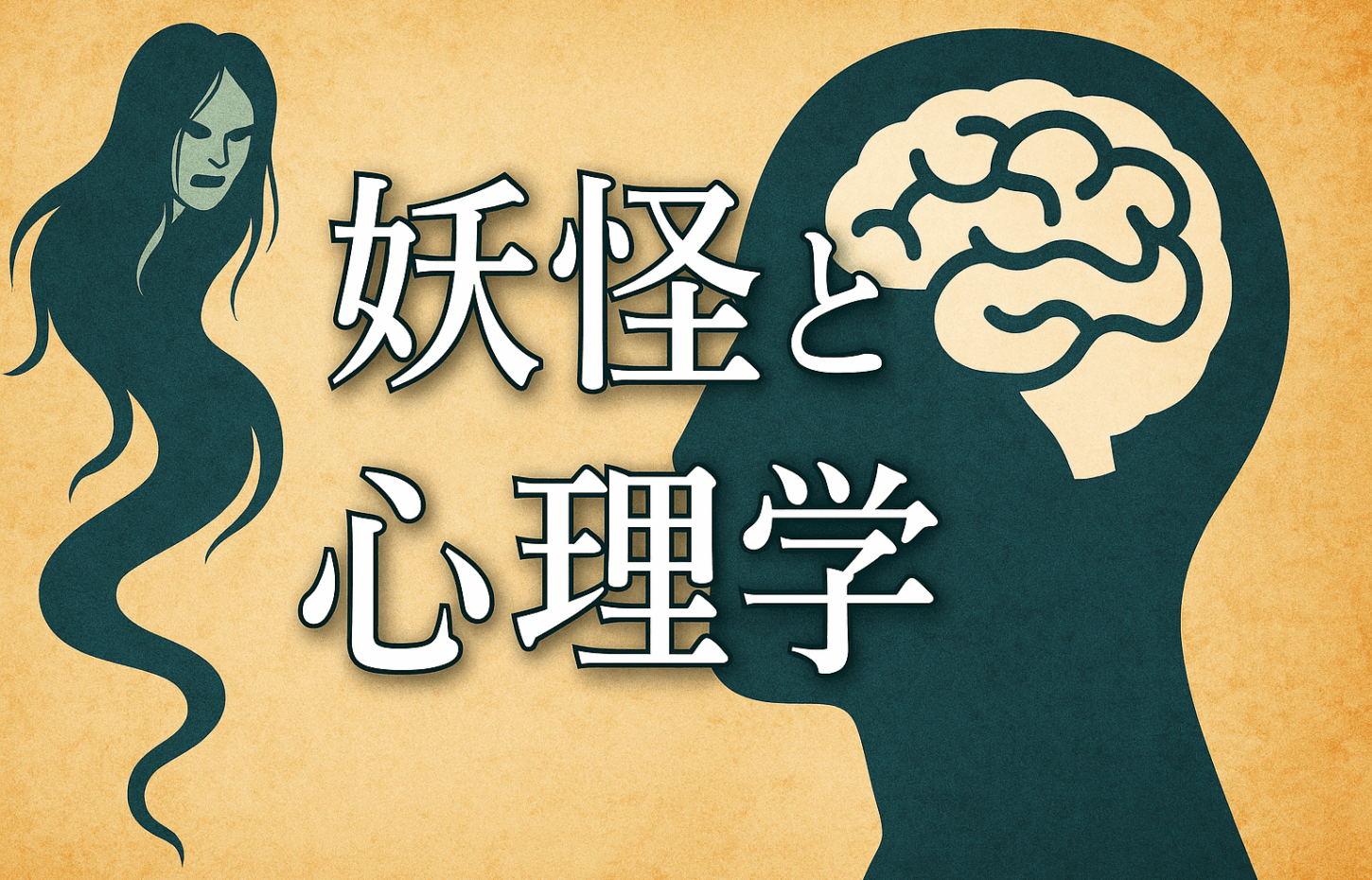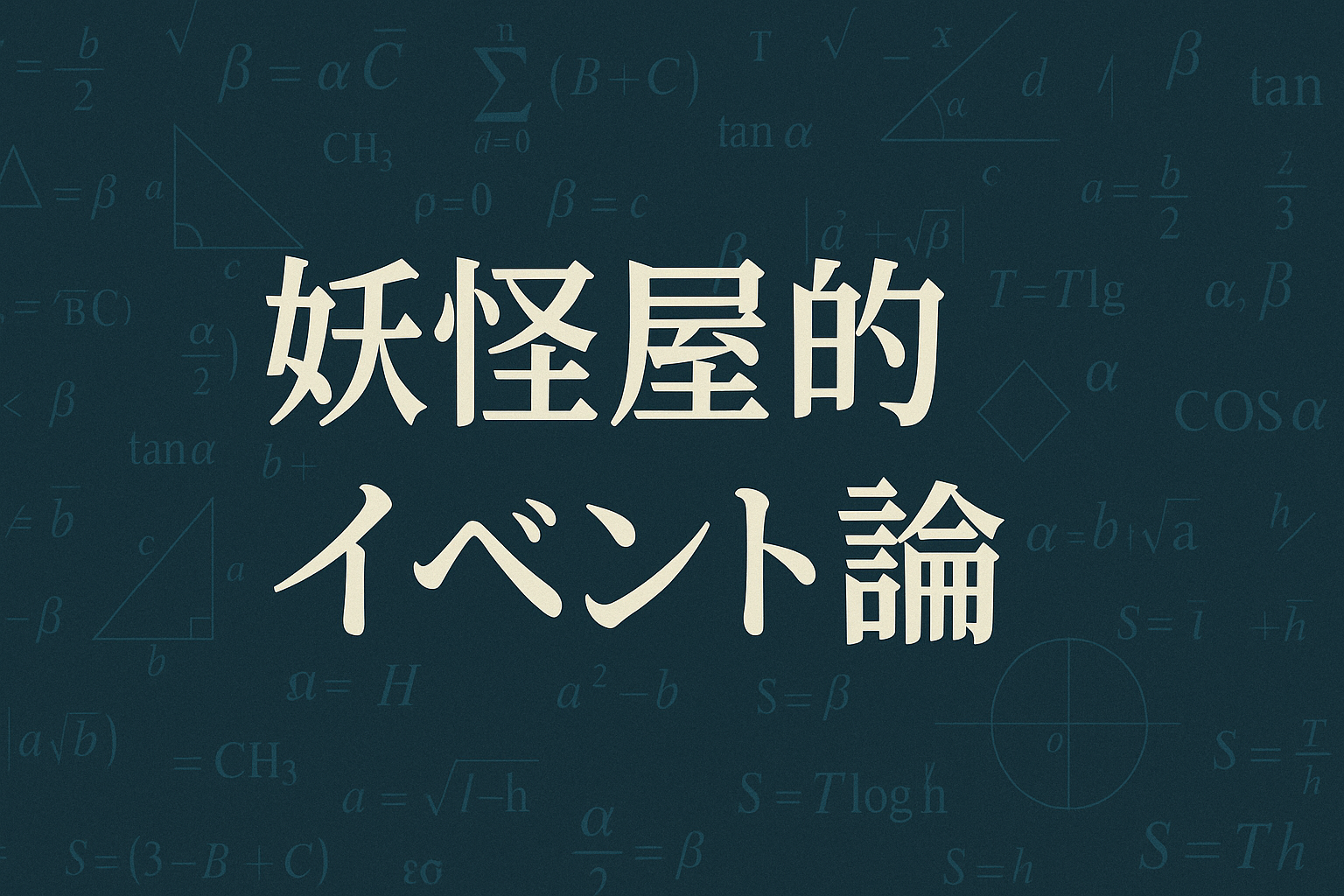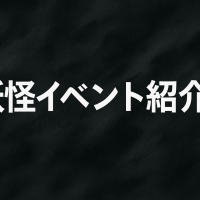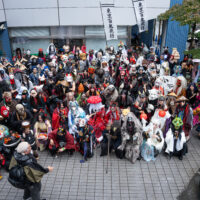
Yokai and Negative Emotions: The Yokai Way of Thinking that Embraces Weakness

There is a general feeling in society that "being positive" is good and that "negative things should not be spoken." I used to think the same way. If you say something negative in front of others, it will cause worry to those around you. Following this "common sense of adults," I believed that being cheerful and energetic was the right thing to do.
However, after I learned more about the existence of yokai, my thoughts gradually began to change.
Yokai are the embodiment of emotions
Yokai don't just exist in our imaginations. They are the shadows of the negative emotions that swirl inside of us - anger, sadness, jealousy, anxiety, loneliness - that sometimes take on a physical form. In other words, yokai can be said to be the product of the shadow side of humans.
In Jungian psychology, there is a concept called the "shadow," which is the unconscious part of us that we don't want to acknowledge or that we feel is socially unacceptable.
If you continue to deny the negative emotions you feel by telling yourself, "I shouldn't be like this," those emotions will sink to the depths of your unconscious and eventually surface in unexpected ways, like a ghost peeking at you from somewhere unseen.
In a society that suppresses emotions
In modern times, there are fewer opportunities to "vent" emotions, such as getting drunk, complaining, fighting, and then making up, as in the past. Nominative communication has fallen into disuse, and politeness has taken precedence, so expressing emotions is sometimes seen as "lack of self-control."
However, if you keep bottling up your emotions, they may manifest in an explosive outburst on social media or in attacking others. This can be described as a state in which the demons inside your heart have gone wild.
We are inherently beings who share emotions, empathize, and heal each other. The first step to creating a healthy mental cycle is to acknowledge negative emotions, rather than pretending they don't exist.
Both positive and negative are human
Of course, it's important to spread positive messages. Words and actions that brighten people's hearts are essential to society.
However, denying the very idea of having negative emotions is like denying half of yourself. Humans have both positive and negative sides. Yokai teach us this.
We cannot always be in the light. It is because of shadows that the value of light is highlighted. Negative emotions are also an important part that give depth and meaning to our lives. Rather than forcing yourself to suppress them, accepting the way you feel will lead to peace of mind.
How to Deal with Shadows: A Yokai-like Approach to Emotional Management for Modern People
So how do you deal with negative emotions?
- Give it a nameFrustration, uneasiness, frustration—putting vague emotions into words gives them shape. Yokai can also be recognized and spoken about by being given a name.
- Have a place to vent: Create a place where you can safely express your emotions, such as talking with trusted friends, writing in a diary, or creating something.
- Think of a monster: When you're feeling irritated, thinking, "Oh, maybe I'm possessed by a monster right now," helps you see the situation objectively.
- Know that shadows are not evilDialogue with your shadow is the first step towards self-understanding. Yokai thinking teaches you how to live with the darkness in your heart, rather than forcibly eradicating it.
What is a safe place?
A "safe place" where you can vent your feelings is not necessarily just a physical space. It is a psychologically safe place—an environment where you will not be rejected, laughed at, or pitied, but simply accepted.
The atmosphere that is created in relationships with trustworthy people is the essence of a safe space. And in modern times, even social media can play that role.
Social media: a modern-day yokai hotspot
In modern times, social media also functions as a place to express emotions. While this may seem dangerous at first glance, it can also help alleviate loneliness by fostering empathy and connections.
For me, putting my feelings into words on social media is not just a form of self-expression. I hope that by deliberately revealing what's on my mind, people will think, "Ah, if Yokai-ya thinks that way, maybe I should talk a little about it too."
When someone speaks up, others start to think, "It's okay to say things like that." If a chain reaction like that occurs, I think it becomes a "path of compassion" within a small society.
By putting it into words, the shadow ceases to be a shadow
By giving names to yokai, they are recognized as "beings," told in stories, and remain in culture. In the same way, by putting our emotions into words, they are given shape and can be treated as something that "exists with us."
Having negative emotions is not a weakness; it's a sign of life and humanity.
Even today, Yokai-ya continues to give names to these feelings and put them into words, hoping that a light will shine on the nameless yokai within someone.







No comments yet.